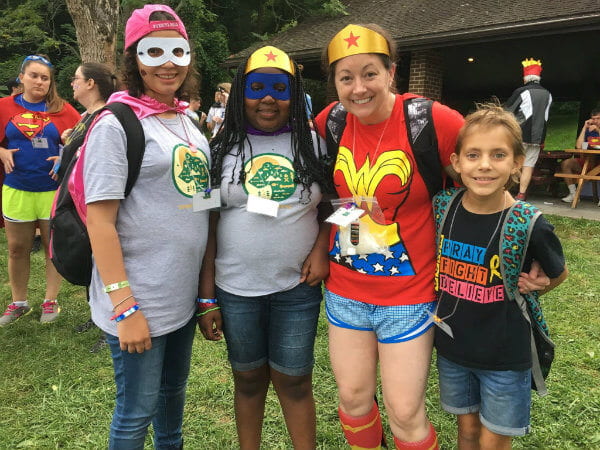In the United States alone in 2017, an estimated 10,270 new cases of cancer will be diagnosed among children from birth to 14 years. About 1,190 children are expected to die from the disease. (NIH-National Cancer Institute, https://www.cancer.gov/types/childhood-cancers).
Treating children’s cancer is not the same as treating adult cancer. The Treehouse project at UC Santa Cruz is passionate about and committed to childhood cancer research and uncovering new therapeutic avenues. In the coming months, we will share various Treehouse projects with you. This month, we will discuss our DIPG Research at Treehouse.
Diffuse Intrinsic Pontine Glioma (DIPG) is a rare and fatal pediatric brain cancer with limited treatment options. In order to develop better treatment options for DIPG, we need to understand the DNA (or genetic code) of DIPG cancer cells. We need to understand how the DIPG’s DNA molecules are “expressed” or ignited and become cancerous.
At UC Santa Cruz Genomics Institute’s Treehouse Childhood Cancer Initiative, researchers are analyzing and comparing DIPG tumors’ genes in order to identify unique ways the tumors express themselves in their genetic code. The hope is that by identifying these unique genetic expressions, physicians can better match existing treatment regimens to the cancer — for a personalized and precise treatment plan.
We are finding that the genes expressed abnormally in cells derived from DIPG tumors function in cholesterol biosynthesis, a metabolic pathway that is also affected in heart disease. This pathway can be targeted by drugs that are often prescribed to patients with heart disease. We are researching whether this may help pediatric patients.
Since we do not have hospital or a medical school at UC Santa Cruz, we create partnerships with pediatric oncology hospitals such as UC San Francisco, Children’s Hospital of Orange County and Stanford. These hospitals send us patients’ RNA sequencing data, which we analyze and discuss with the physicians. We also continuously add this tumor data to our “compendium,” which we use as reference for comparing future samples. We also obtain research data sets from public initiatives, such as The Cancer Genome Atlas (TCGA) and Therapeutically Applicable Research to Generate Effective Treatments (TARGET).
Our compendium is also publicly available to others on the UCSC Xena Browser. As we get more samples, we look forward to future experiments, to test our results on a larger cohort of DIPG tumors, and to learning and improving our understanding of cancer from every child affected by the disease.


Recent Comments